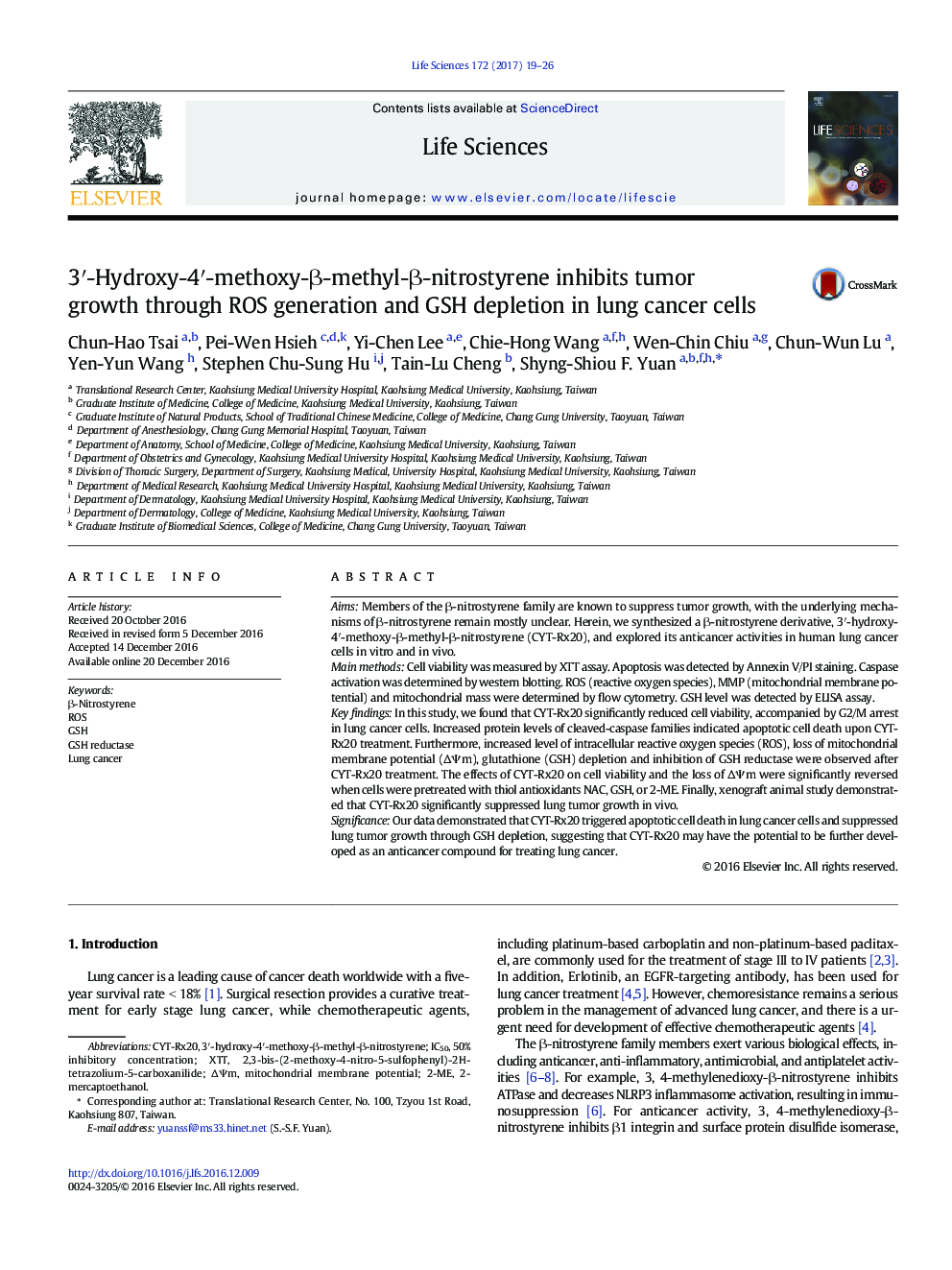| Article ID | Journal | Published Year | Pages | File Type |
|---|---|---|---|---|
| 5557058 | Life Sciences | 2017 | 8 Pages |
AimsMembers of the β-nitrostyrene family are known to suppress tumor growth, with the underlying mechanisms of β-nitrostyrene remain mostly unclear. Herein, we synthesized a β-nitrostyrene derivative, 3â²-hydroxy-4â²-methoxy-β-methyl-β-nitrostyrene (CYT-Rx20), and explored its anticancer activities in human lung cancer cells in vitro and in vivo.Main methodsCell viability was measured by XTT assay. Apoptosis was detected by Annexin V/PI staining. Caspase activation was determined by western blotting. ROS (reactive oxygen species), MMP (mitochondrial membrane potential) and mitochondrial mass were determined by flow cytometry. GSH level was detected by ELISA assay.Key findingsIn this study, we found that CYT-Rx20 significantly reduced cell viability, accompanied by G2/M arrest in lung cancer cells. Increased protein levels of cleaved-caspase families indicated apoptotic cell death upon CYT-Rx20 treatment. Furthermore, increased level of intracellular reactive oxygen species (ROS), loss of mitochondrial membrane potential (ÎΨm), glutathione (GSH) depletion and inhibition of GSH reductase were observed after CYT-Rx20 treatment. The effects of CYT-Rx20 on cell viability and the loss of ÎΨm were significantly reversed when cells were pretreated with thiol antioxidants NAC, GSH, or 2-ME. Finally, xenograft animal study demonstrated that CYT-Rx20 significantly suppressed lung tumor growth in vivo.SignificanceOur data demonstrated that CYT-Rx20 triggered apoptotic cell death in lung cancer cells and suppressed lung tumor growth through GSH depletion, suggesting that CYT-Rx20 may have the potential to be further developed as an anticancer compound for treating lung cancer.
